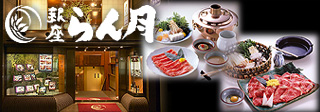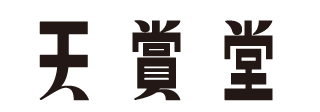
Announcements
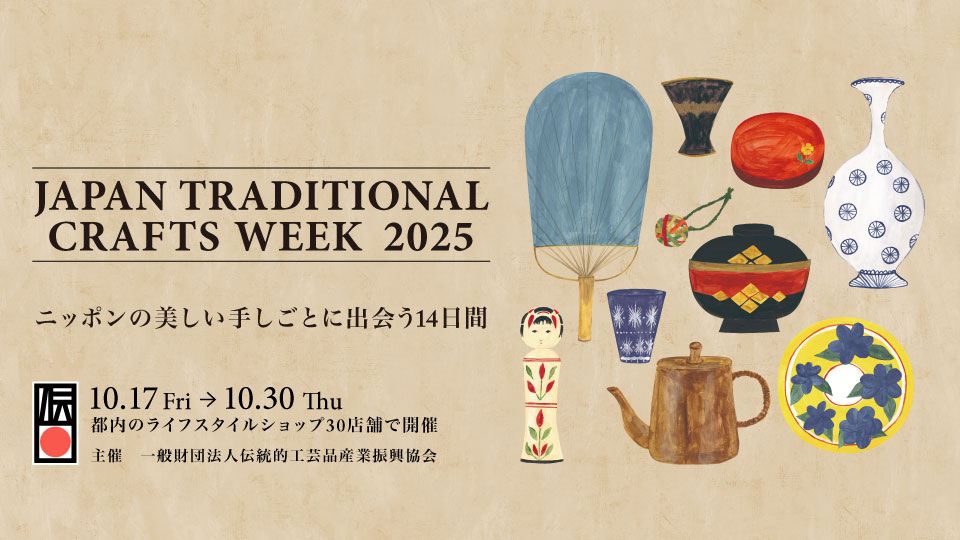
JAPAN TRADITIONAL CRAFTS WEEK (JTCW) 2025
2025.10.17 - 2025.10.30
The JAPAN TRADITIONAL CRAFTS WEEK (JTCW) is a 14-day event from October 17th (Friday) to 30th (Thursday) that connects the CREATORS of traditional crafts with us, the USERS, through 30 lifestyle shops—the SELLERS—in Tokyo. During the event, you can encounter crafts from across Japan, which you usually don’t have an opportunity to get in touch with, while touring around each city.
From the Ginza area, 16 shops will participate. Each shop itself selects a traditional craft, visits its production area, consults with the artisans, and during the period, exhibits and sells products selected and created for the event. Another unique feature of this event is that you can participate in demonstrations and workshops held by inviting artisans from the production areas. Such demonstrations and workshops will be held at eight stores, including GINZA ITOYA Main Store, GINZA FUJIYA, KYUKYODO Ginza Store, and GINZA TANAGOKORO. For details on the event and participation, please check the official website.
This year, we will run a gift campaign where if you purchase an eligible traditional craft at a store participating in JTCW and answer a brief questionnaire, you will receive a roll of original washi tape on the spot. Limited to one item per person per purchase, the tape will be given out at all 30 participating stores. Quantities are limited, so please visit the stores early.
The JTCW 2025 Brochure, which contains details about the stores participating in JTCW and other information, is also available at the G Info Ginza Tourist Information Center.
Official website
https://jtcw.jp/2025/en/
MATSUZAKI SHOTEN
Opening up a new path of TOKYO-HONZOME-CHUSEN
TOKYO-HONZOME-CHUSEN
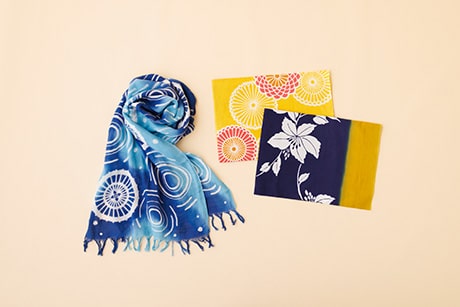
Tokyo Wazarashi, founded in 1889, continues to develop various items such as a haori (a half-length coat), a stole, and a towel bag, let alone a hand towel—all of which are the main products of TOKYO-HONZOME-CHUSEN, a type of stencil dyeing. In recent days, we have been receiving much popularity mainly from inbound travelers.
GINZA TANAGOKORO
WAJIMA-NURI x Binchotan Charcoal
WAJIMA-NURI
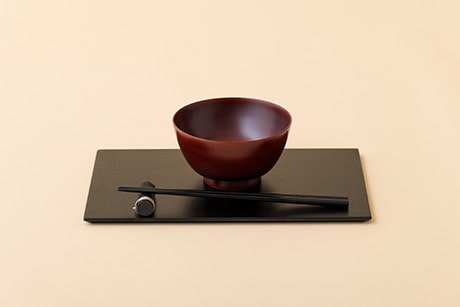
Wajima Kirimoto creates new value of lacquer that fits into modern life. Enjoy a new worldview born from a fusion with Binchotan charcoal.
GINZA TANIZAWA TOKYO
Handmade, one by one
NAMBU-TEKKI
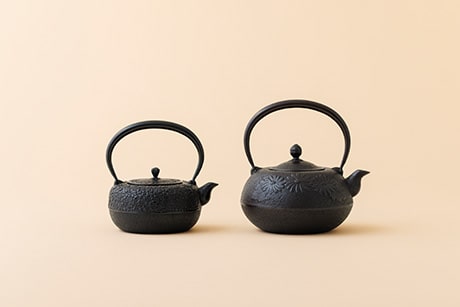
We would like to introduce Nambu Tetsubin (iron kettle) by Kamatetsubin Kobo Saaki Chuzosho (foundry) based in Oshu City, Iwate Prefecture; the iron kettles are produced by Kei Sato, a traditional craftsman. From traditional ones to those that match modern times, we propose items so that you can enjoy your life through a variety of iron kettles.
GINZA ITOYA Main Store
Incorporating into life—handicrafts for praying
OWARI-BUTSUGU
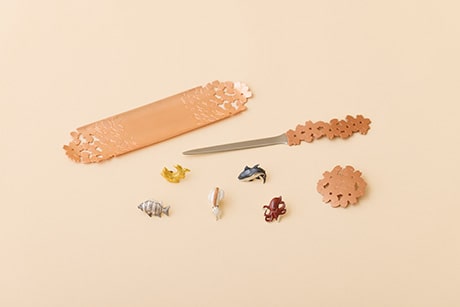
Incorporate the 300-year-old craftsmanship of OWARI Buddhist altar fittings into life.
It is a one-of-a-kind art piece with tranquility and warmth, where craftsmanship shines.
GINZA NATSUNO
Utility as tableware that fits into your life
SHODAI-YAKI
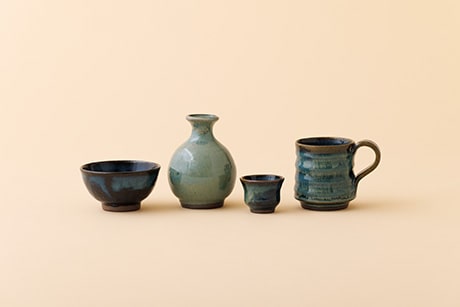
The SHODAI ware is one-of-a-kind tableware created by the handwork of a craftsman. Its utility as “tableware for everyday use” rather than “tableware for display” truly embodies the “beauty of utility.” It is a “once-in-a-lifetime” pottery that cherishes the encounter with the person who uses it.
GINZA FUJIYA
Textile from the kasuri road
RYUKYU-KASURI
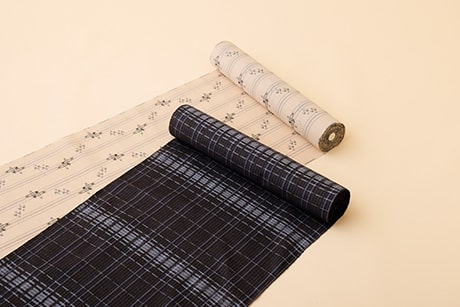
The technique of kasuri (cloth with splashed patterns), which is made by weaving pre-dyed threads according to a design, is said to have transmitted to Japan from the Ryukyu Islands via India and Southeast Asia. Please come to our store to see the charm of the handiwork of RYUKYU-KASURI, which has given a great influence on Japanese textiles.
HAKUHINKAN TOY PARK Ginza Main Store
Traditional techniques that continue to be handed down from the Edo period
EDO-KIMEKOMI-NINGYO
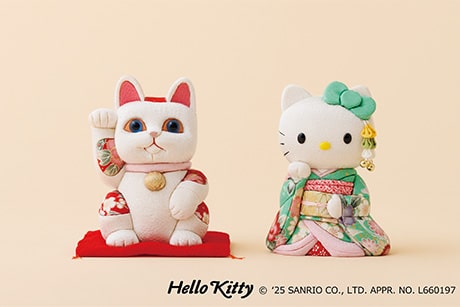
Edo Kimekomi is a technique of carefully embedding the ends of a high-quality fabric into the cracks of a wooden torso. The technique flourished widely in making elegant hina dolls. Now, new types of kimekomi dolls, such as character dolls, are also attracting attention.
KYUKYODO Ginza Store
Connecting tradition to the present day, hoping for the sound growth of children
NAGOYA-SEKKU-KAZARI
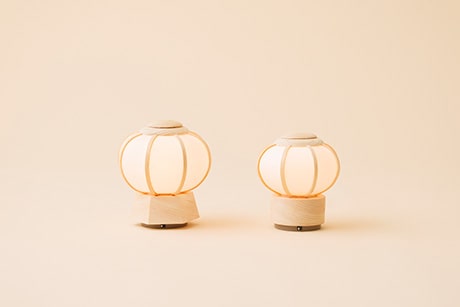
We will put a focus on a “bombori” lamp, one of Nagoya Festival Decorations consisted of three seasonal festival crafts. Although “bombori” has a strong image as a traditional craft, it has recently been reconsidered as a lamp used in everyday life. Take a look at the soft light emitted by “bombori” that provides comfort.
KURASHI NO KAORI Main Store Ginza
The pottery of Yoyo-gama kiln that fits seamlessly into your life
AMAKUSA-TOJIKI
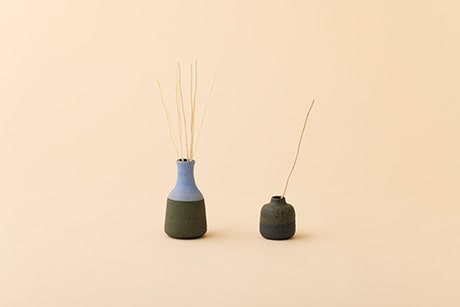
Amakusa is a hometown of pottery that produces high-quality pottery stone since olden times. While preserving traditions, each kiln continues to make pottery in its own style.
This time at KURASHI NO KAORI, we would like to introduce the pottery from the Yoyo-gama kiln, where you can enjoy their warm form and color.
Share a link




